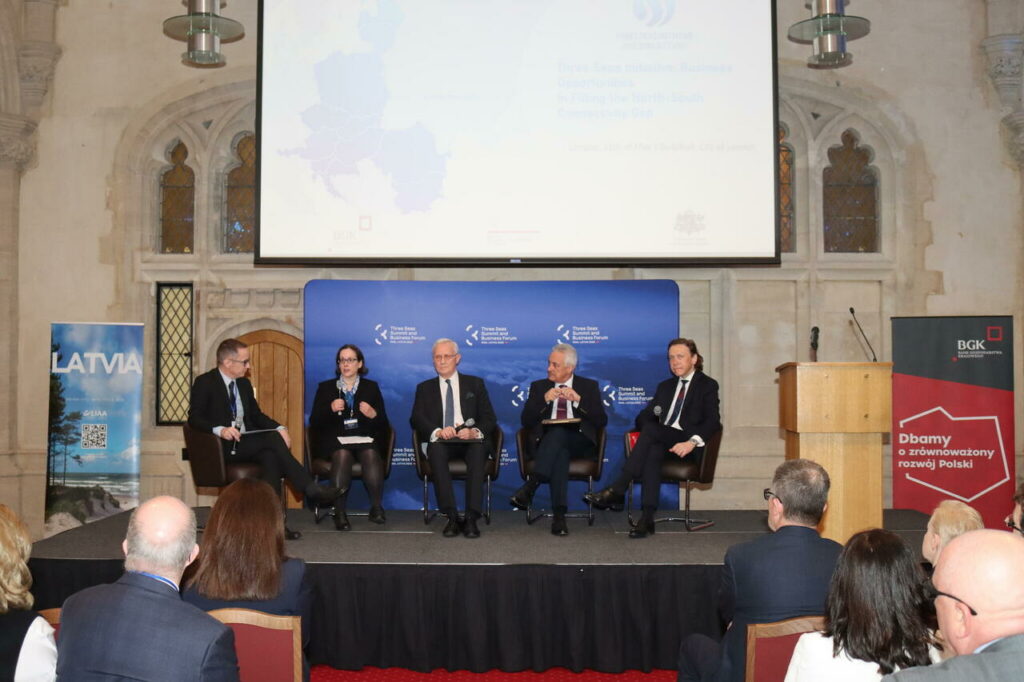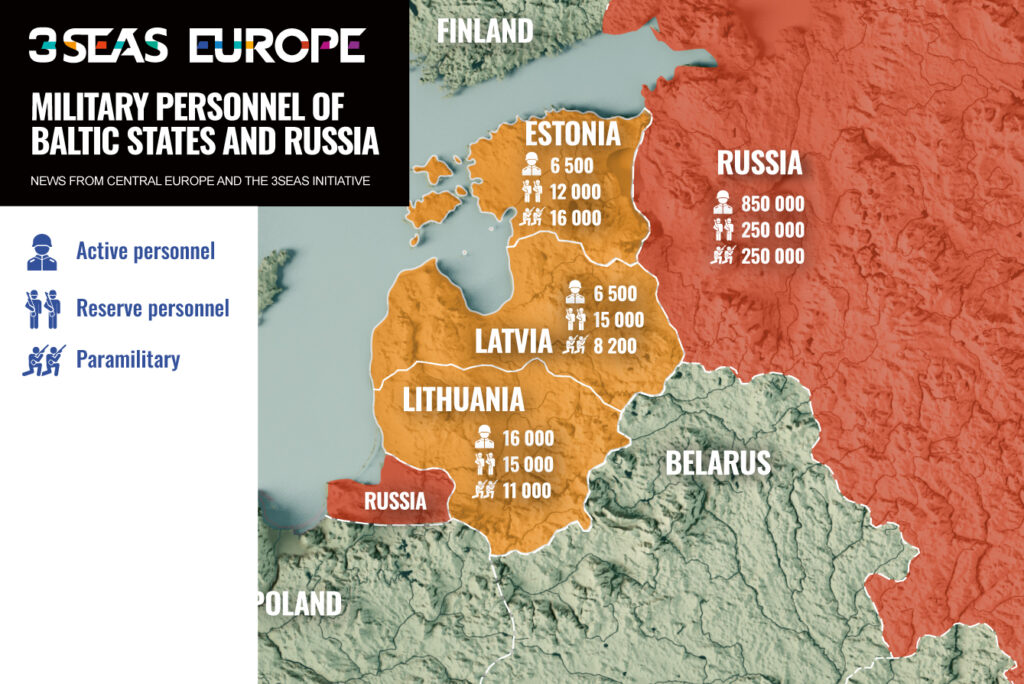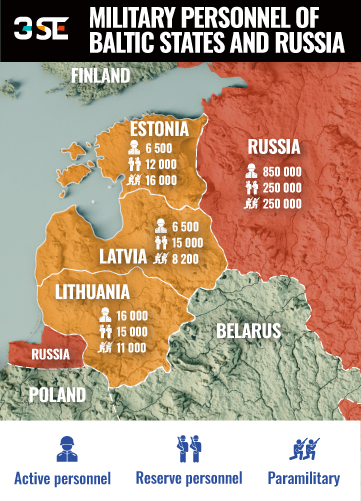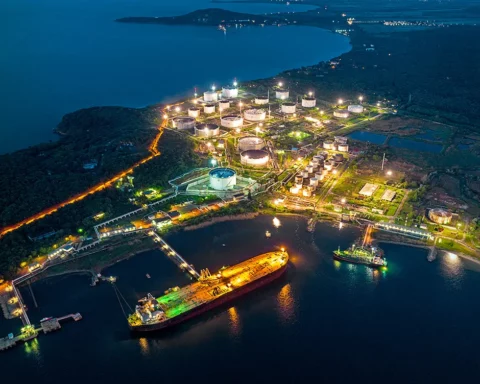Despite popular belief, England, and later the United Kingdom, has never traditionally been very involved in the affairs of the Three Seas region or Central Eastern Europe. In recent centuries, other powers, such as France, Russia, Austria-Hungary, the Ottoman Empire, and Germany, were politically or economically engaged in this part of Europe.
Britain-3 Seas relations to strengthen?
Though there was an exception during the Second World War when the Polish, Czechoslovak, and Yugoslav governments in exile all found themselves in London, and Churchill was viewed as the main hope for restoring national independence.
However, history never stops, and Russia’s decision to invade Ukraine on 24 February could result in a situation in which the UK will deem it necessary to significantly strengthen its relations with Central Eastern Europe.
The prospects of increased UK involvement in the Three Seas Initiative were recently discussed during a seminar on the Three Seas that was organized in London on 12 May 2022 by the Embassies of Poland and Latvia in the United Kingdom in cooperation with the Polish Development Bank. The event, the “Three Seas Initiative: Business Opportunities in Filling the North-South Connectivity Gap,” was held a little more than five weeks before the annual Three Seas Initiative Summit, which will be held in Riga, Latvia, on 20-21 June.
The London seminar took place at Guildhall, the building that has been used as the town hall of the City of London since medieval times. It is still the ceremonial and administrative center of “the Square Mile,” one of the world’s most important financial centers, together with New York City, Tokyo, and Hong Kong. At the event, representatives from the Latvian government emphasized that Guildhall was a particularly fitting location for the event, as the country aims to focus the Three Seas Summit in Riga on attracting more international investors to invest in the Three Seas region and the Three Seas Initiative Investment Fund in particular.
Considering the number of representatives of financial institutions from the City of London present at the event, the Three Seas seminar in Guildhall was an important step in making the Three Seas more visible to investors based in the UK. Present in virtual form, Lord Gerry Grimstone, the UK Minister for Investment at the Department for International Trade and the Department for Business, Energy & Industrial Strategy, stated that the British government has taken measures to provide more information to British investors about the opportunities available in the Three Seas region. The head of the Department of International Trade also confirmed that its delegation to the Three Seas Initiative summit in Latvia will be bigger than ever before.

War as a catalyst for closer ties
3SeasEurope attended the seminar in Guildhall and had the opportunity to ask Susannah Simon, the Europe Director at the Foreign Commonwealth and Development Office (FCDO), about her thoughts on the UK’s relations with the Three Seas region.
Ms. Simon stated that London has already started a process of engaging more closely with the countries of the Three Seas region. The reasons for this are plenty, but most importantly is that both government and business have recognized the need to enter markets that are expanding and have previously been untapped by UK businesses.
She argued that the large Three Seas diasporas living in the UK are another factor closing the geographic distance to the Three Seas. Poles, Romanians, and Lithuanians form the largest groups from Central Eastern Europe living in the UK, but practically all Three Seas countries have a significant demographic presence in the British Isles. Nearly 2 million Central-Eastern Europeans (CEE) have made the UK their home. The diaspora groups keep doing business with their home countries and serve as gateways for British companies and nationals to enter the markets in CEE.
Despite the UK having left the EU, the country is the European NATO member that, together with Poland, has sent the most military aid to Ukraine
Ms Simon also stated that Russia’s invasion of Ukraine will have far-reaching consequences for the UK’s presence in the region. Despite the UK having left the EU, the country is the European NATO member that, together with Poland, has sent the most military aid to Ukraine. According to the FCDO’s Europe Director, the Three Seas region will play a key role in the UK’s effort to aid Ukraine with military, financial, and humanitarian aid. British troops are already stationed in Estonia and Poland within the framework of NATO’s Enhanced Forward Presence deployment, and it is likely that the number of troops will be expanded after the NATO summit in Madrid at the end of June.
Some first steps for closer ties between the region, the UK, and Ukraine were taken just before the Russian invasion. On 17 February, the UK, Poland, and Ukraine agreed on a new trilateral agreement, in which Poland and the UK committed to stand with the Ukrainian nation in its efforts to defend its sovereignty, independence, and territorial integrity. The agreement is a clear sign that the UK intends to play a very active role in Ukraine and the Black Sea region in the coming years.
Balancing Global Britain and the Three Seas
Historians have argued that the concept of Balance of Power, used within International Relations, has been fully embraced in London since the Italian theory was popularized in England with the publication of the first English translation of Francesco Guicciardini’s Storia d’Italia in 1579. The translation was dedicated to Queen Elizabeth I and stated, “God has put into your hand the balance of power and justice, to poise and counterpoise at your will the actions and counsels of all the Christian kings of your time.”
Asked about the role the Three Seas region might play in balancing British policies, Ms. Simon stated that there is no such policy in place. However, she confirmed that the UK is likely to give the Three Seas more attention in connection with the “Global Britain” foreign policy that Boris Johnson presented in 2016 when he served as Foreign Secretary.
In his first foreign policy speech, presented at Chatham House, Johnson laid out a vision in which the post-EU UK would focus more on pursuing a global foreign policy rather than on what is happening in the small geographic area between London, Paris, and Berlin. In this Global Britain speech, he emphasized the importance of the UK’s NATO membership and the role the UK plays on NATO’s eastern flank.
According to Ms. Simon, the influence of the Three Seas diasporas, coupled with the UK’s increased interest in business opportunities in the growing Three Seas market and the role the region plays in the UK’s involvement in Ukraine, means that London will continue to strengthen its presence in the Three Seas region for years to come.
Judging by the numerous attendance by City of London investors at the Three Seas seminar in Guildhall, her predictions just might prove to be very accurate.









